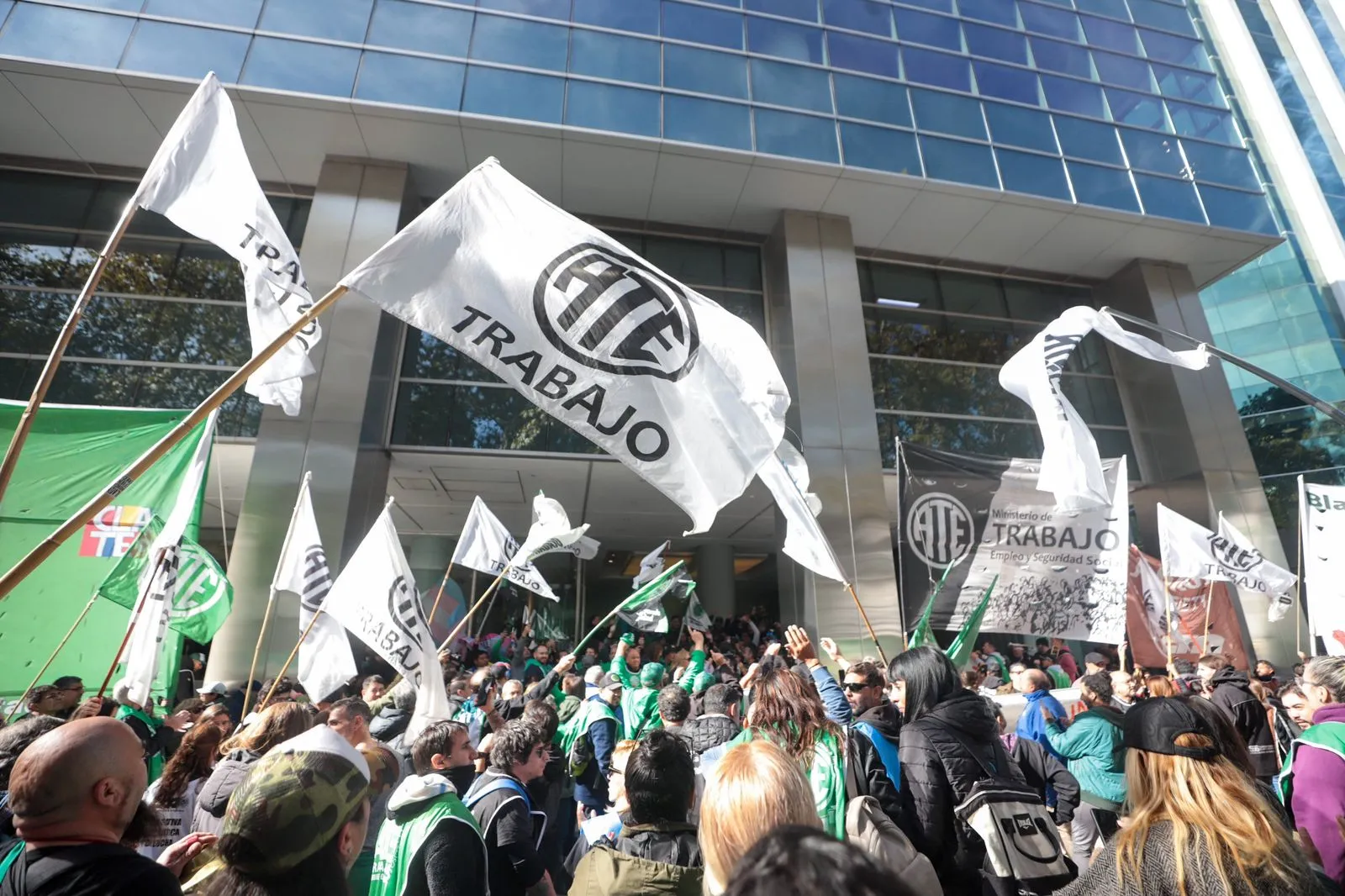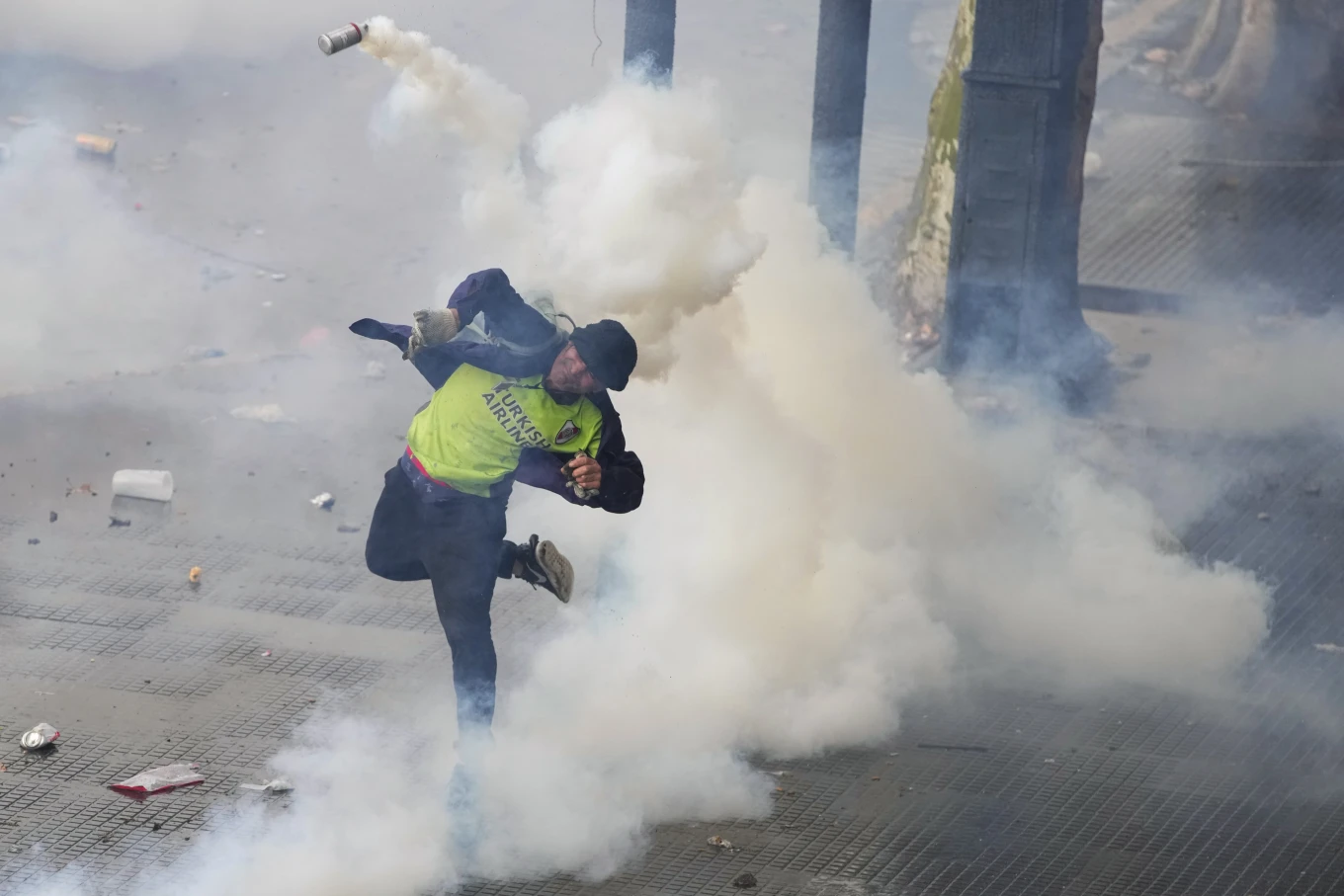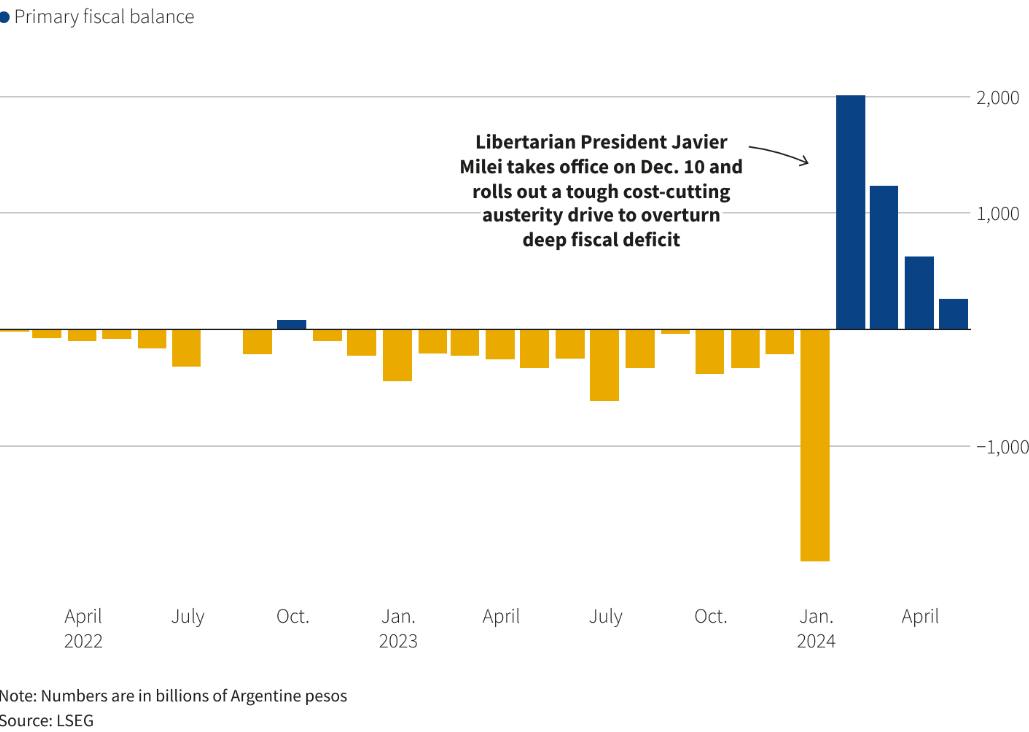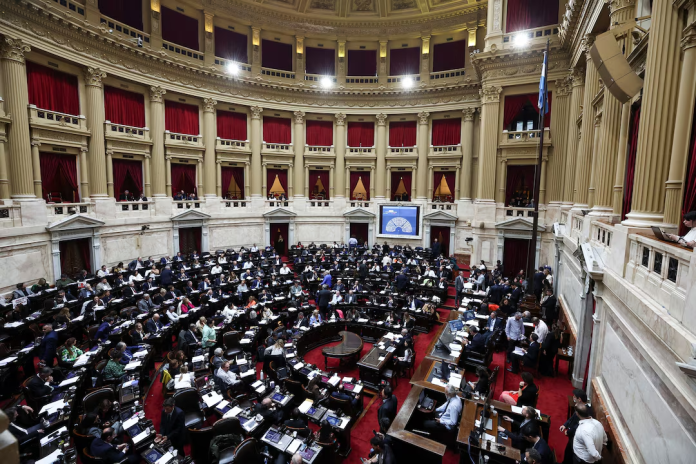Argentina’s Chamber of Deputies passed President Javier Milei’s controversial “Bases Law” on Friday morning, weeks after the bill passed through the Argentine Senate. The bill is now on its way to Milei to pass or veto. The bill previously passed through the Senate in early May, but returned to the lower house of Congress after modifications made by the Senate.
Modifications
The Chamber of Deputies debated the law for a staggering 13 hours amid demands from opposition lawmakers to drop a number of privatizations of government-owned businesses such as Aerolíneas Argentinas, The Mail Service, and Radio y Televisión Argentina.
Deputies were joined by Argentine Vice President Victoria Villarruel, Presidential Secretary Karina Milei, and Cabinet Chief Guillermo Francos to commemorate the first major victory for Milei’s government since he took office over six months ago.
Among the changes that will be made to the Bases Law is the reinstitution of income tax, with single workers making more than 1.8 million Argentine pesos ($1,976 USD) a month, and married workers with two children earning 2.2 million Argentine pesos (US$ 2,416) a month having to pay between five to 35 percent taxes. In reality, Argentineans’ currency is further devalued through the unofficial “blue dollar” exchange rate, a method of exchanging Argentine pesos for foreign currency that bypasses Argentine economic restrictions intended to prevent capital flight. Those who exchange through the “blue dollar” method typically meet in illegal trading houses known as “cuevas” or through street vendors.
A Controversial Bill
The bill has been the subject of a large number of demonstrations ranging from protests conducted by unions to a violent riot outside Congress while the bill was debated within the halls of the Argentine Senate. In April, Argentina’s public sector workers’ union (ATE) threatened to blockade roads leading to the annual Llao Llao Economic Forum in Bariloche, Río Negro. This protest was called due to the president’s firing of 15,000 service workers as a part of Milei’s “chainsaw plan,” a plan which seeks to remedy Argentina’s abysmal financial situation through massive cuts to government spending which the president claims to be the fault of a “political caste.”

Later in that same month, thousands of students took to the streets of Buenos Aires to protest cuts to public universities. These cuts allegedly forced universities to cut a number of essentials, including power, air conditioning, and elevators, after the universities were unable to pay electric bills. Students of public universities were not the only ones taking to the streets, with those from private schools joining their compatriots in the protest against the economic reforms. Some private schools also closed to show their support.
Students were joined by a plethora of activists, with unions and political figures taking to the streets alongside those seeking higher education.
In May, the ATE mobilized again in Buenos Aires. The union gathered at the headquarters of Techint, a corporate group which owns a number of companies specializing in the production of steel, the construction of buildings, and other architectural products, which protestors claimed to be where “the real power is.”
The ATE claimed that a large number of politicians have attained their positions with aid from Paolo Rocca, the owner of Techint. The union stated that it is because of this influence that they targeted the private company, with one spokesman of the union, Rodolfo Aguiar, claiming that the “main decisions are no longer made in Balcarce 50 [the workplace of the president], but rather in the offices and legal firms of the main economic groups in our country.”

Aguiar further claimed that the Argentine government’s announcement of a budget surplus was “a lie” before attacking the policies that made the surplus possible and further demanding negotiations for a wage increase.
“It [the surplus] is based on cutting pensions and a brutal adjustment to public employment. They left us without a raise in April, and they want to leave us without a raise in May. All deadlines to settle this month’s assets have expired. We demand the immediate call for joint negotiations and a salary increase that, in a single installment, allows us to recover all the purchasing power lost since the government took office,” Aguiar stated.
While the bill was being debated in the Senate, thousands of demonstrators gathered outside the national congress in opposition to the bill. Ultimately, protestors were met with forced dispersion tactics due to the demonstration taking place on a public road and heightened tensions, which culminated in bottles and other improvised projectiles being thrown at authorities.
Demonstrators were joined by a number of political figures opposed to the Bases Law, including three members of Argentina’s Chamber of Deputies, the country’s lower house of Congress, who were forced to seek treatment for burns to their eyes from the use of pepper spray. Demonstrators had gathered since early morning, with reports of those opposed to the bill and Milei’s administration blocking streets leading to the Senate, a move that was met with police presence following previous warnings by Minister of Security Patricia Bullrich that blocking streets would result in action by authorities.

“They should not even think of throwing a stone or lifting a tile, because they cannot. There are limits. They want to say that they are against the law, that only words are valid, that stones, sticks, taking over Congress, nothing is valid. We have forces ready to act if they try to use violence,” Bullrich said in a statement.
Due to these demonstrations on the streets, Bullrich enacted the anti-picket protocol, which seeks to prevent demonstrators from interfering with Argentines’ daily lives by preventing and breaking up demonstrations on major roads, highways, and other access points for important infrastructure such as hospitals and schools. Bullrich has previously warned demonstrators to avoid taking to the streets, telling one such group of demonstrators in April that “the streets are for the citizens. Demonstrations take place on the sidewalks.”
In response to police attempts to disperse the demonstration, demonstrators began attacking authorities on the scene, throwing bottles and other projectiles. By 3:30 p.m. local time, demonstrators began throwing bottles and stones before turning over a vehicle owned by Cadena 3, an Argentine news outlet, lighting it on fire, and attacking a journalist belonging to the same news outlet, Clarin, another Argentine media outlet, reported. After demonstrators lit the vehicle on fire, authorities on the scene utilized water cannons in an attempt to disperse demonstrators.
Some analysts have expressed concerns over Milei’s policies, claiming that while Argentina’s economic restructuring would surely improve the nation’s financial standing, it may still affect everyday Argentineans as government aid is cut and many public workers lose their jobs.
Despite these criticisms, Milei’s administration has announced the first budget surplus in years, and Milei himself has received praise from the International Monetary Fund (IMF), Argentina’s largest money lender. Shortly after Milei won the presidential office, the government announced Argentina’s first budget surplus in years, a trend that has persevered through April and is likely to continue throughout the year as well.

Furthermore, Argentina’s monthly inflation rate has decreased heavily since Milei took office, dropping from 25 percent in December to just 8.8 percent in April, a first for the nation in years. Despite this victory, annual inflation has increased slightly, standing at 289.4 in April from 287.9 in March, which itself increased from February’s 276.2, leading some to speculate the rate will only climb higher as time goes on. Despite these increases, some theorize Milei’s Bases Law will help curb annual inflation and further remedy the nation’s monthly increase.
The passage of the Bases Law signals a massive victory to Milei’s government, which despite holding the presidential office, only has 38 of 257 seats in the Chamber of Deputies and seven of 72 seats in the Senate. While the ruling party was forced to make a number of concessions to ensure the passage of the bill, it remains a stern victory for the president and his party. The bill will now proceed to Milei himself, who has the option to veto the bill, veto with suggested changes, or pass the bill, which is the most likely outcome.

